Dr. Save Kumwenda is a scholar and academic leader who heads the Public and Environmental Health Sciences Department. His work is grounded in a mission to improve public health outcomes through rigorous academic training, interdisciplinary collaboration, and research that addresses real-world health challenges. With qualifications culminating in a PhD, Save brings a strong scientific background, an analytical mindset, and a deep appreciation for evidence-based health practice.
As department head, Save plays a central role in shaping curriculum direction, strengthening academic standards, and supporting the development of future professionals in public and environmental health. He is known for his structured approach to teaching and administration, ensuring that programmes remain aligned with global public health priorities, national health strategies, and emerging research trends. His leadership has contributed to improved academic organization, enhanced student engagement, and greater departmental visibility within the university.
Save’s scholarly interests focus on the intersection of environment, health, and community well-being. He remains active in research, supervision, and professional engagement, strengthening the department’s role in addressing contemporary health concerns. His vision is to build a department recognized for producing practitioners and scholars capable of driving transformative change in Malawi’s health landscape.
A reflective and balanced individual, Save enjoys reading and following football—interests that provide both intellectual stimulation and personal relaxation alongside his demanding professional commitments.
Overview
The Department of Public and Environmental Health Sciences stands at the forefront of education, research, consultancy and community engagement in the health sciences. Originally part of the Mathematics and Science Department, it became a standalone academic unit on 1 September 1995 and has since evolved into a vibrant, multidisciplinary department producing professionals capable of tackling complex public and environmental health challenges at local, national and global levels.
Our mandate spans academic leadership, professional training and scientific problem-solving in community health, environmental health, occupational safety and health, food safety, hygiene, pollution control and public health engineering. We train graduates who protect communities, safeguard workplaces and strengthen health systems through evidence-based practice.
Academic Structure
The department is organized into three integrated sections:
- Public Health Section – Focuses on disease prevention, health promotion and the design of solutions to pressing public health challenges.
- Occupational Safety and Health (OSHE) Section – Addresses health, safety and environmental management issues across workplaces and industries.
- Environmental Health Section – Concentrates on preventing and controlling environmental factors that drive disease and adverse health outcomes.
This structure supports training and research that cuts across community settings, workplace environments and ecological systems.
Programmes Offered
We deliver a full pipeline of professional training, from diploma to doctoral level.
Diploma & Undergraduate Programmes
- Diploma in Public Health (under the Institute for Continuing Education)
- Diploma in Occupational Safety and Health (DOSH) – offered through open and distance e-learning (ODeL)
- Bachelor of Science in Environmental Health – the flagship programme built on six pillars: Occupational Safety and Health, Food Safety and Hygiene, Community Health, Built Environment, Pollution Control, and Climate Change & Health
- Bachelor of Science in Occupational Safety and Health
- Bachelor of Science in Public Health – launching soon
Our undergraduate programmes place strong emphasis on theoretical depth, professional ethics, work-integrated learning and supervised research, ensuring graduates are ready for multidisciplinary and multisectoral practice.
Postgraduate Programmes
We offer a robust suite of postgraduate pathways designed to build advanced expertise and research competencies.
- MSc in Environmental Health
- MSc in Occupational Safety and Health
- MSc in Sanitation (jointly offered with the PBS Department)
- MPhil in Applied Sciences – Environmental Health
- MPhil in Applied Sciences – Environmental Sanitation
- Master’s in Health and Behaviour Change Communication (MHBCC) – offered jointly with the Department of Language and Communication
- PhD in Applied Sciences – Environmental Sanitation
- PhD in Applied Sciences – Public Health Engineering
Our MPhil and PhD programmes prepare candidates to conduct rigorous, complex scientific research that informs policy, drives innovation and produces sustainable solutions for emerging environmental and public health challenges.
Focus Areas
Our teaching, research and outreach activities address a broad spectrum of health issues, including:
- Food Safety and Hygiene
- Pollution Control
- Occupational Health and Safety
- Community Health
- Built Environment
- Climate Change and Health
- Public Health
- Public Health Engineering
- Environmental Sanitation
Research, Consultancy & Community Engagement
The department is widely recognized for its applied, high-impact research and its contributions to national development. Our academic staff lead and participate in major national and international research projects, often in collaboration with the Centre for Water, Sanitation, Health & Appropriate Technology Development (WASHTED), a Centre of Excellence within the School.
Key contributions include:
- Development of low-cost, context-appropriate technologies such as solar water disinfection systems and water quality monitoring tools
- Policy-relevant research that informs government, NGOs and international organizations
- Consultancy work across public health, occupational safety, environmental management and sanitation
- Outreach programmes that strengthen community health systems and workplace safety
- Strong presence in professional associations and editorial boards
- Extensive publications in peer-reviewed journals and book chapters
Our staff remain among the university’s most professionally active, ensuring that research feeds directly into teaching, practice and national policy.
Our Unique Strengths
- A blend of academic rigor, applied research and real-world problem-solving
- Strong mentorship for BSc, MSc, MPhil and PhD students
- Close collaboration with industry, government and international partners
- Production of graduates who are technically skilled, research-oriented and ready to lead in environmental and public health sectors
- Commitment to innovation, capacity building and sustainable development
